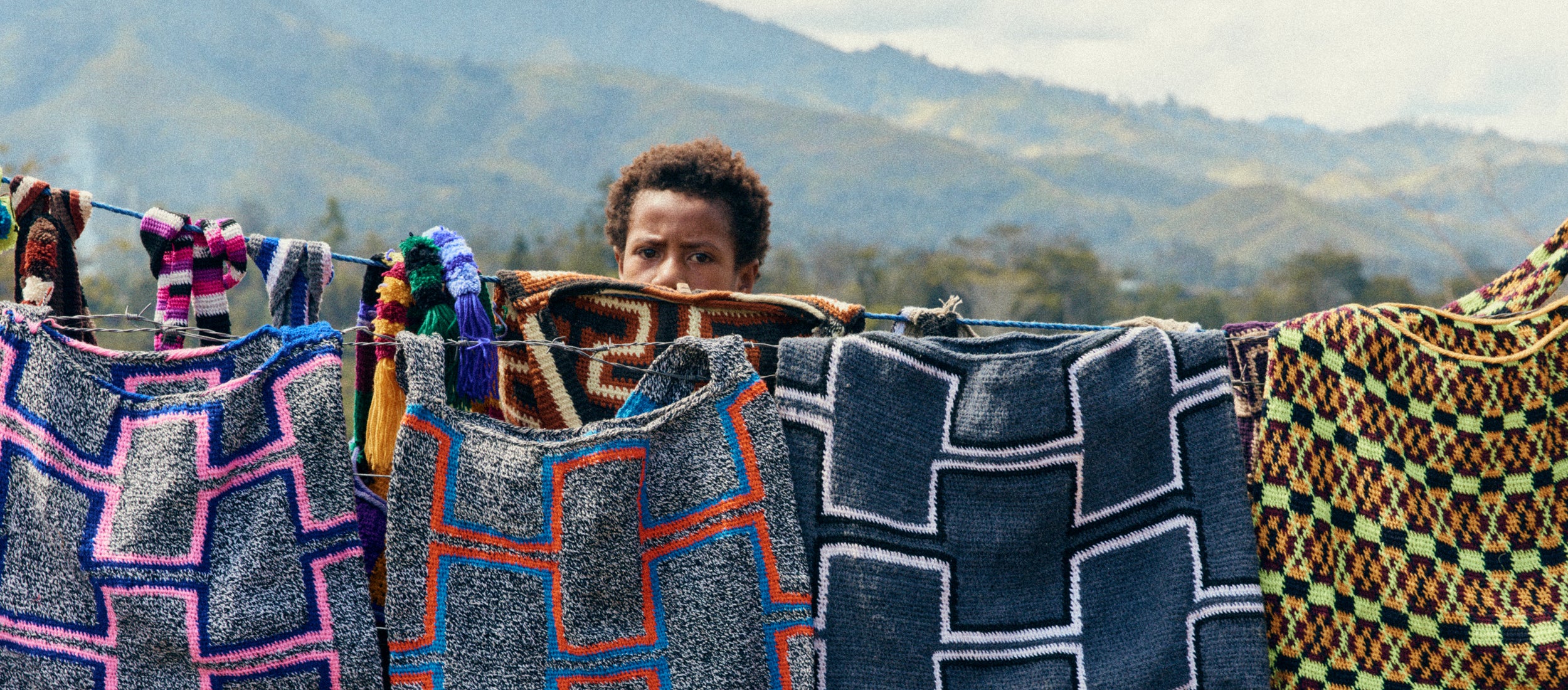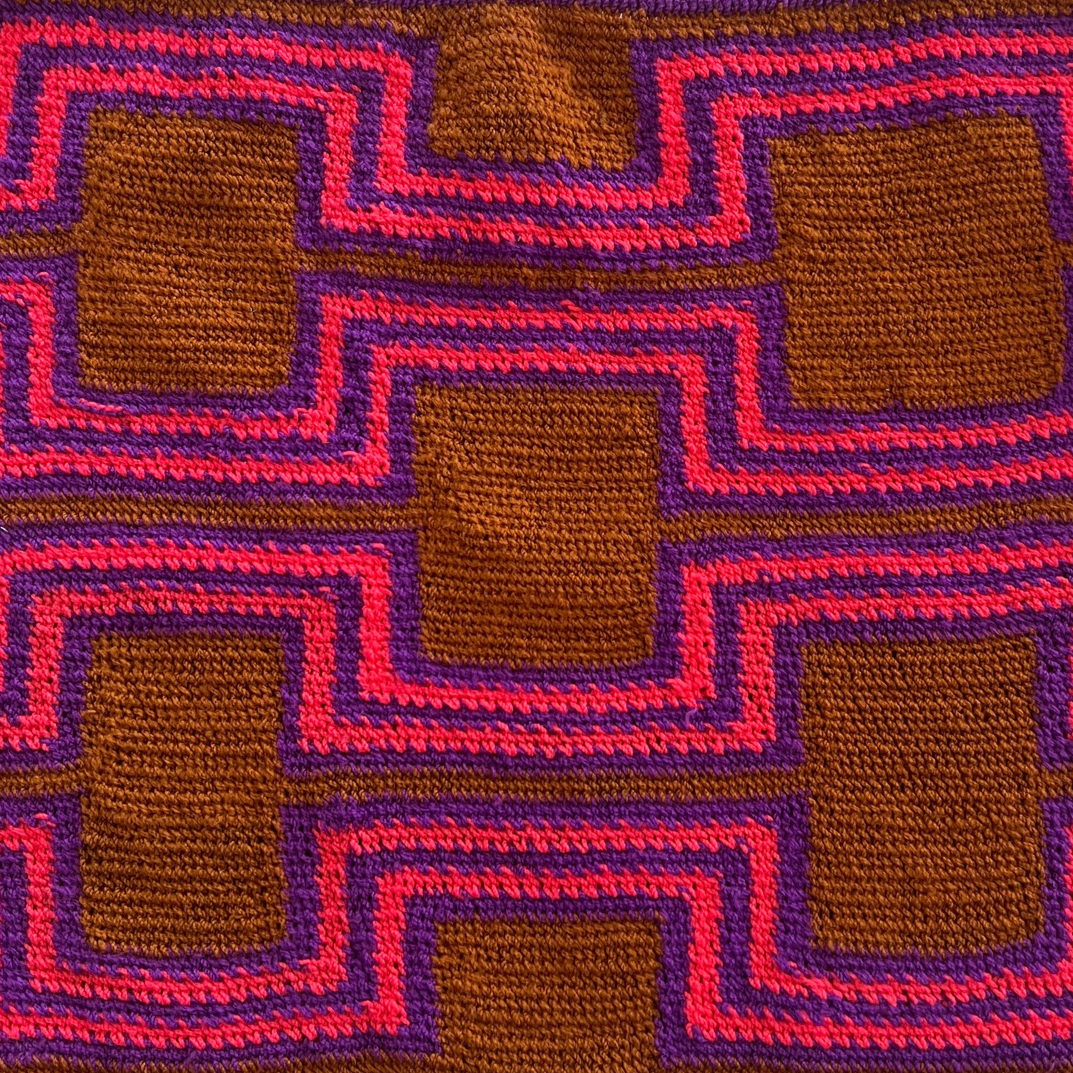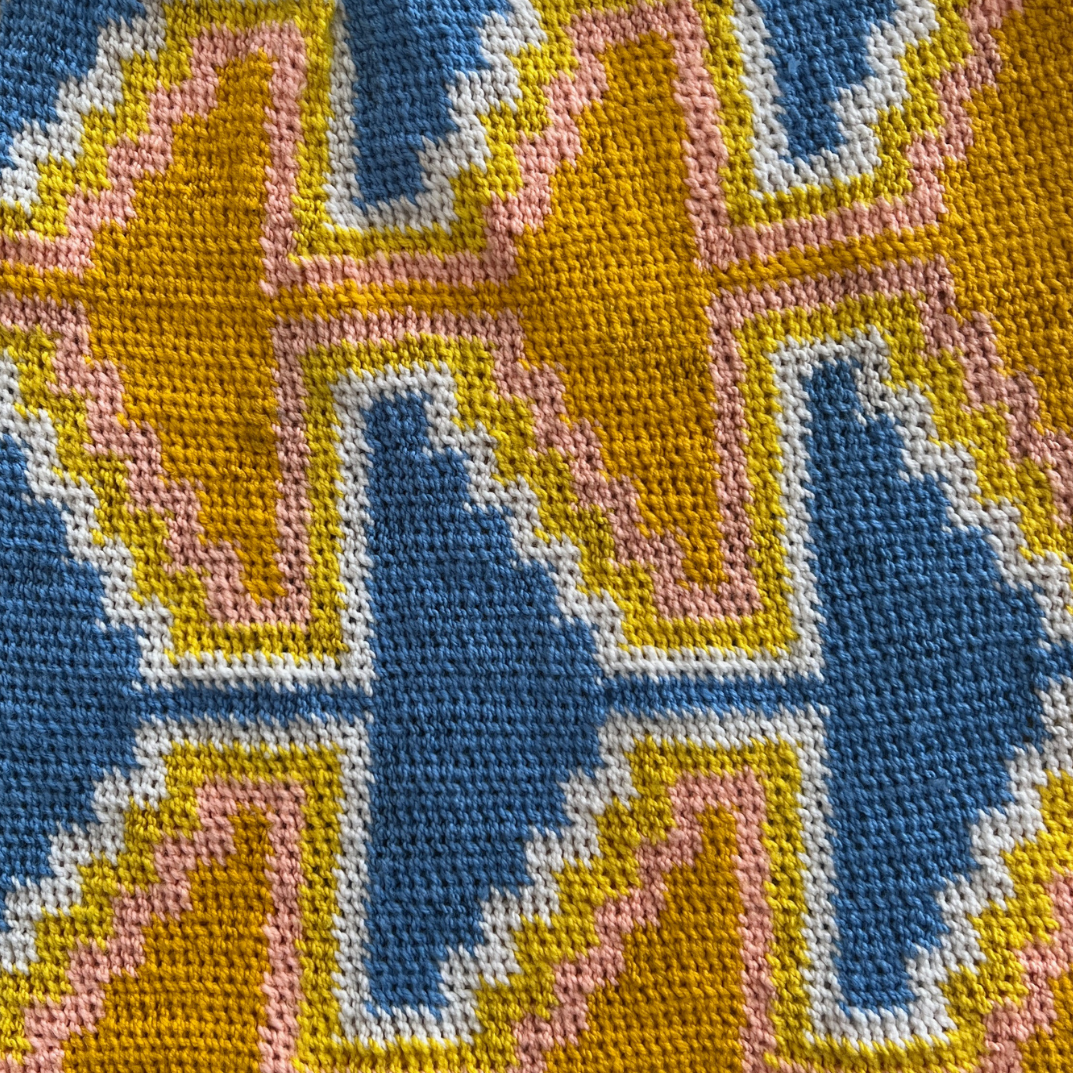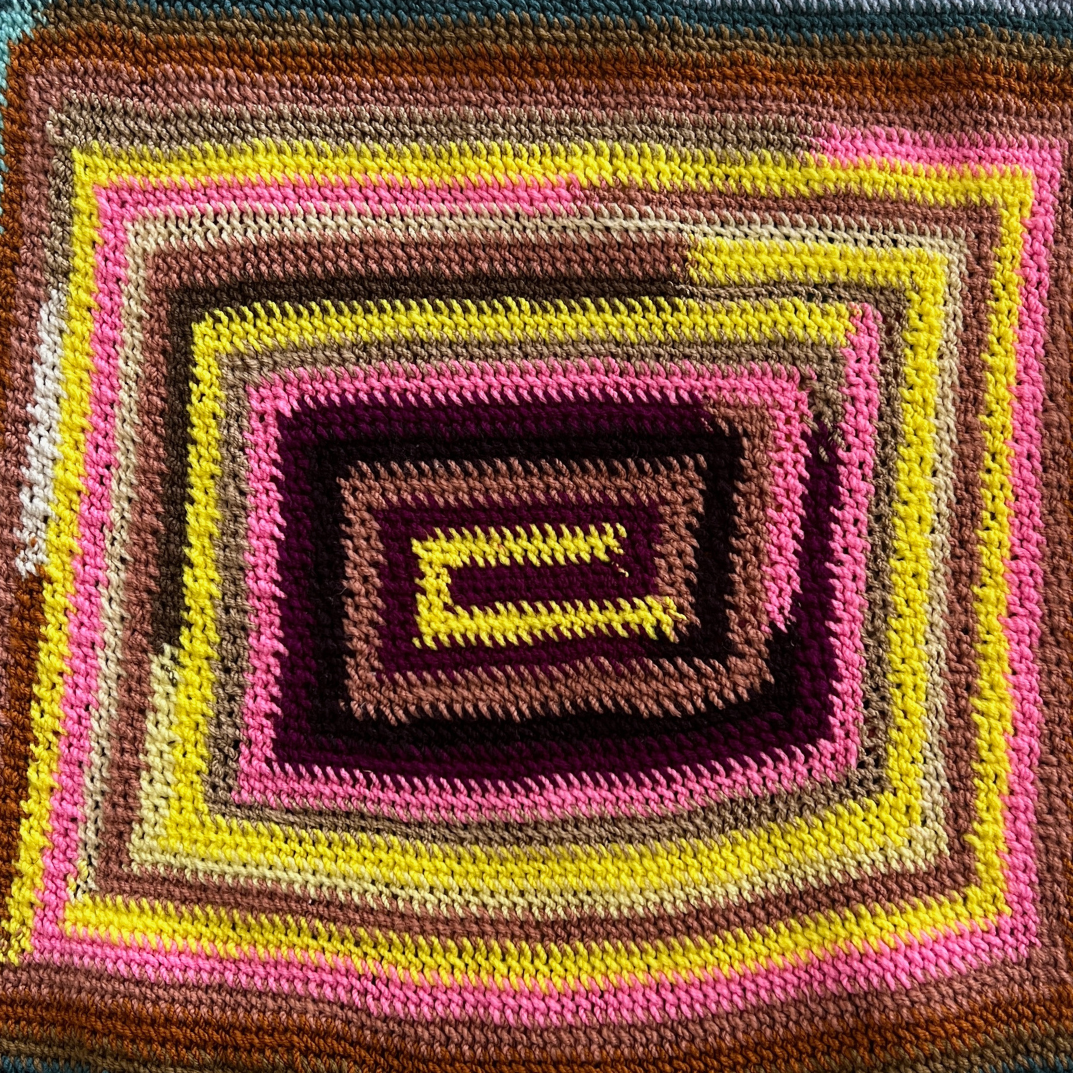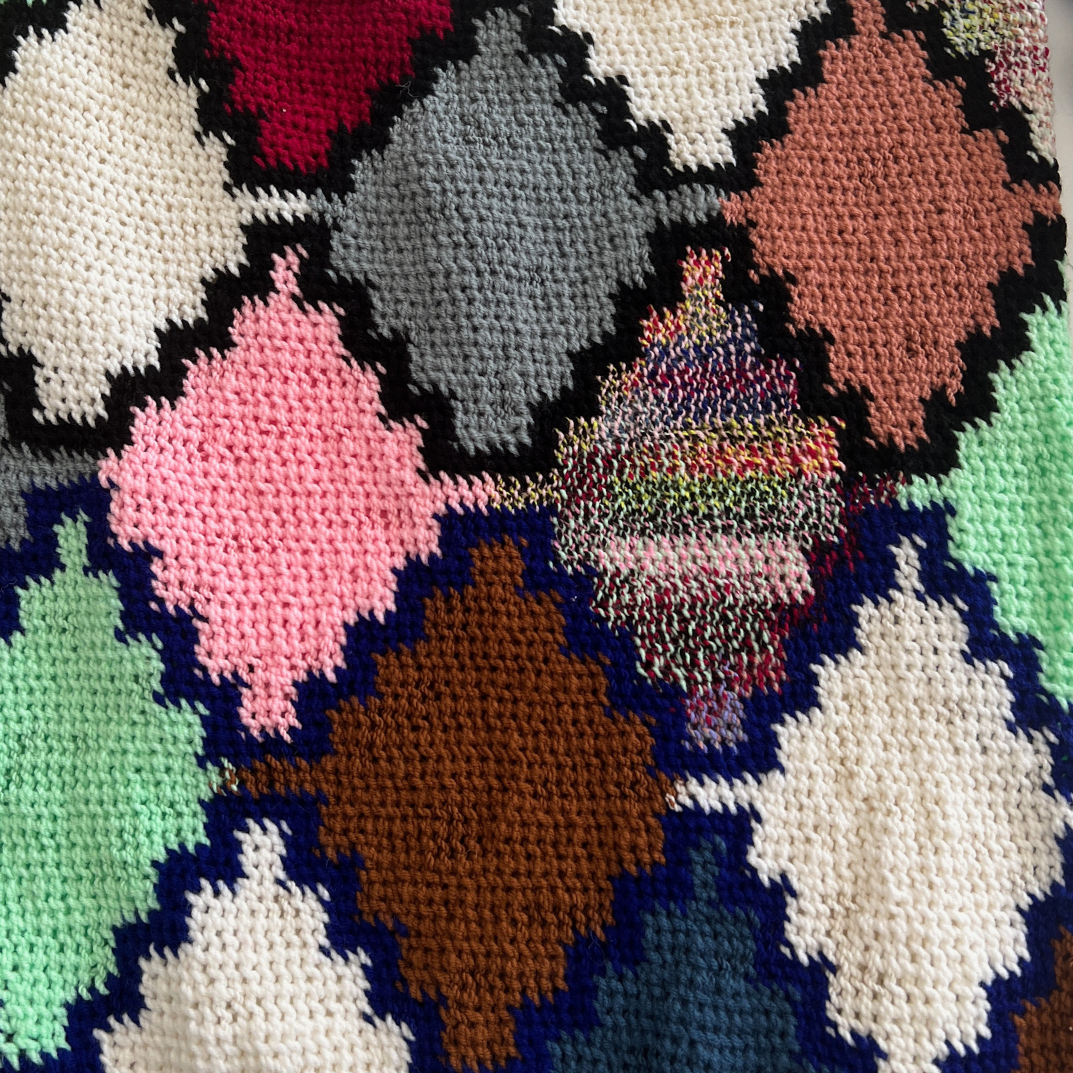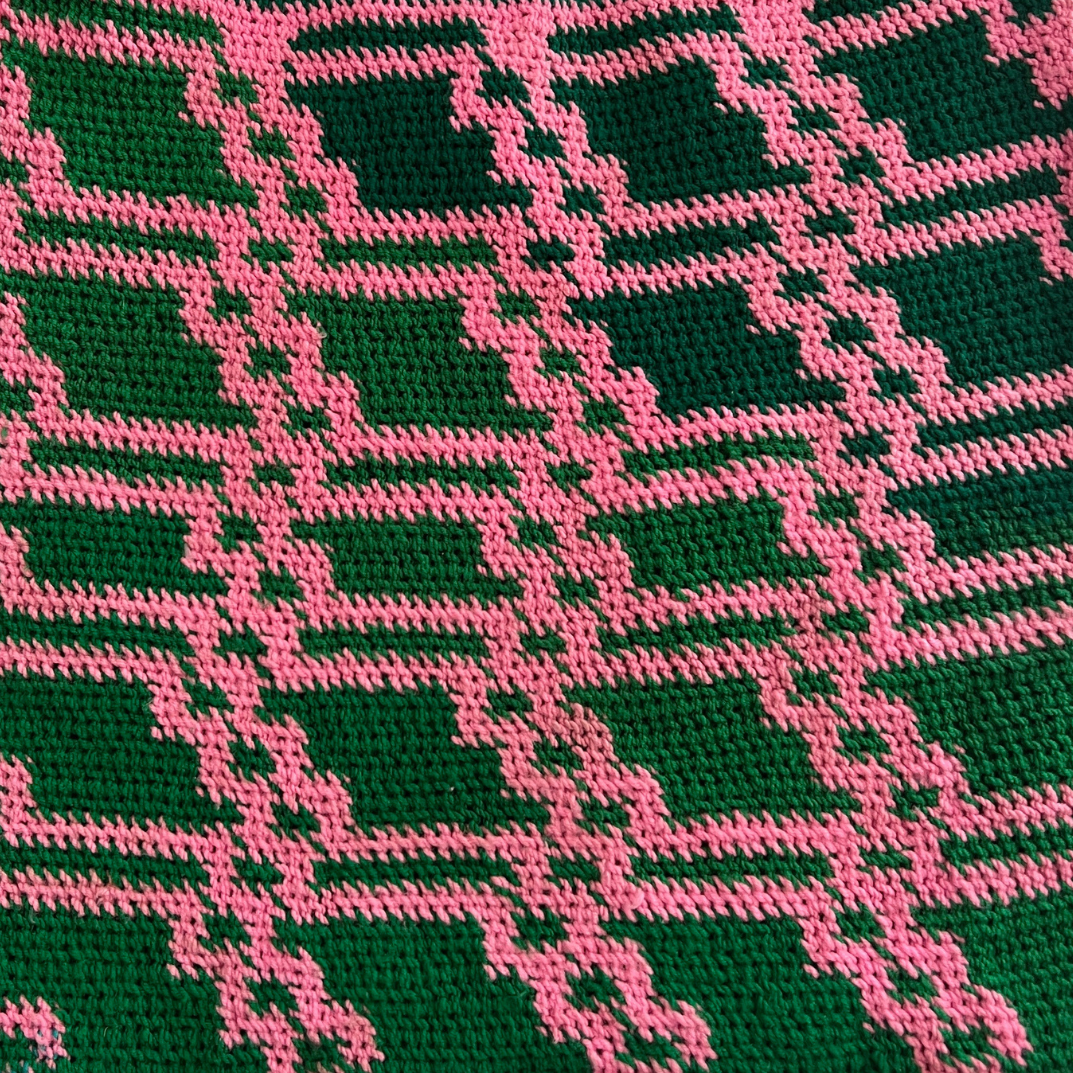EVERY BILUM TELLS A STORY
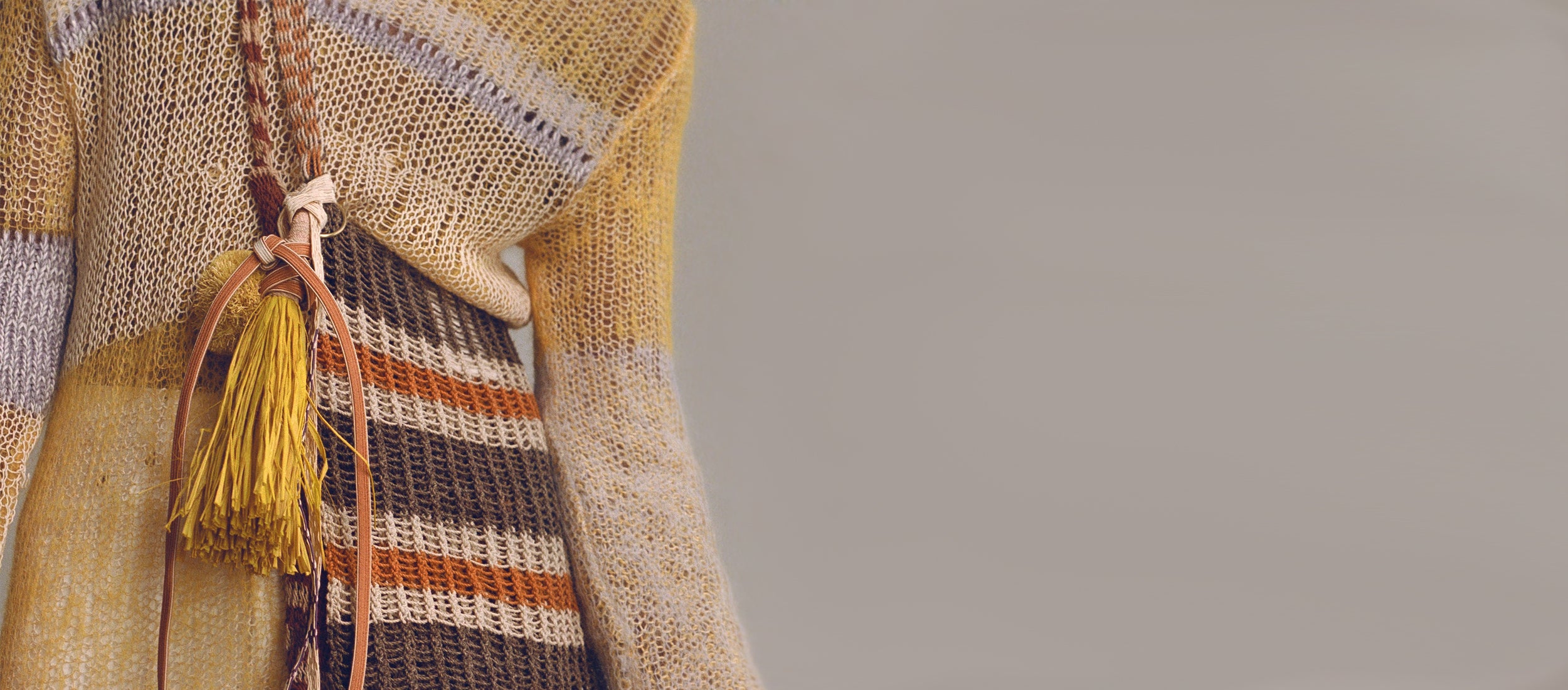

The Fibres
Each Bilum is handwoven and takes around eight weeks to make. The weavers’ beautiful natural fibres are created from surrounding vegetation, such as the Pandanus plant and Tulip tree. These fibres are beaten, rolled on the knee and then twisted into fine yarns. Alternatively, the women work with yarns which have been upcycled, a lengthy process which involves unraveling knitted jumpers and spindling the thread to form fine new lengths.
We adore the weavers’ clever colourplay, which is always so joyous and surprising – natural dyes made from plants, ochres and berries are used to enhance their patterns. It’s a very considered approach, a testament to the women’s exceptional artisanal skills and their philosophy to work holistically using natural or recycled materials.
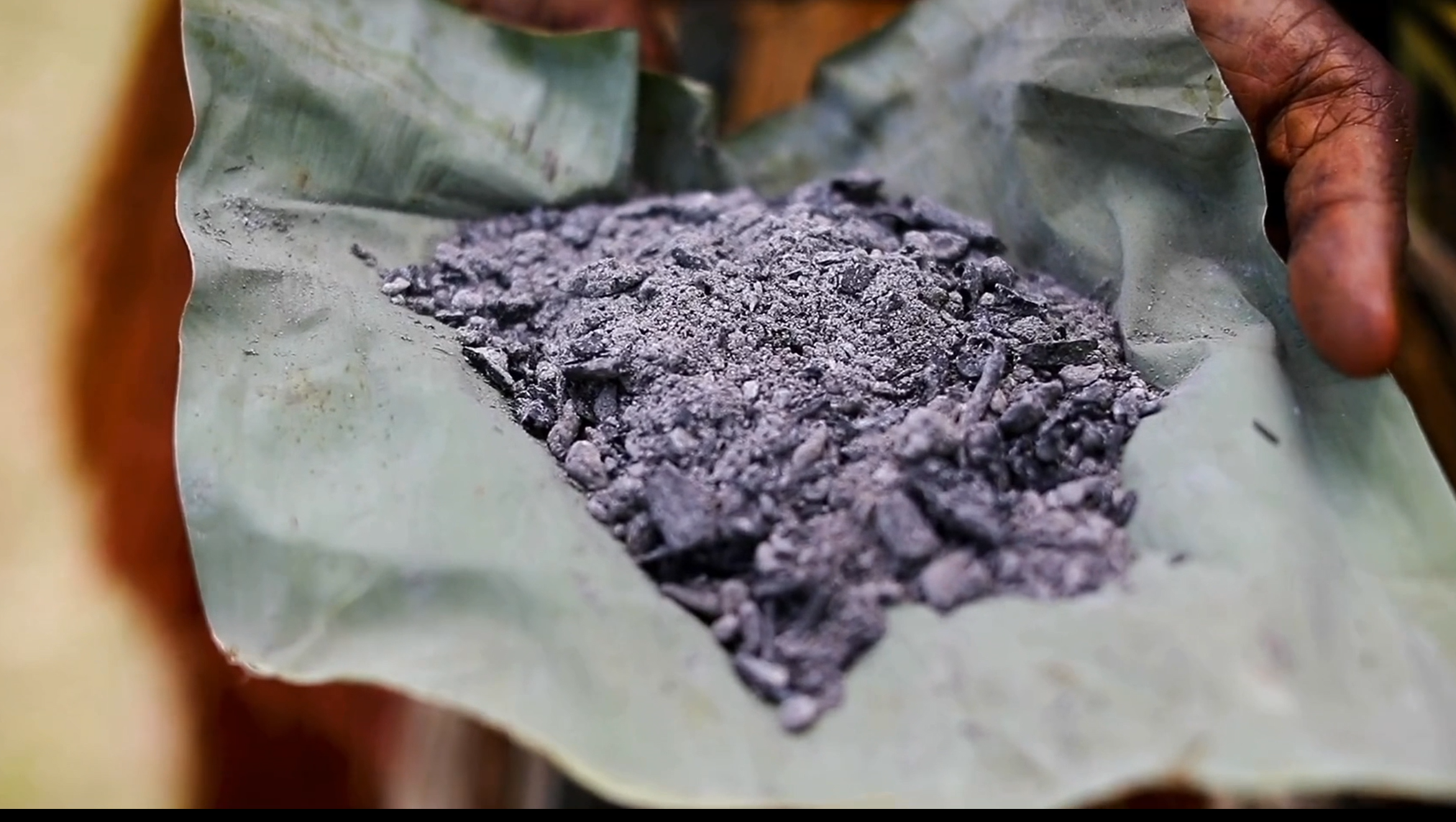
The Weaving
Each Bilum bag is unique, a one-of-a-kind work of art particular to the weaver and her home region in The Highlands, Telefomin or Sepik River regions. Their woven patterns are culturally significant talismans that speak of independence and strength.
The traditional hand technique of weaving bush yarns or upcycled fibres is a lengthy process that involves twisting and looping in rhythmic movements, a method that is mesmerising to watch. The shape of the Bilum is guided by the form of the weaver’s hands, a love that is felt so deeply and expressed through each creation. Due to the intricacy of the weaver’s pattern, each Bilum takes around six to eight weeks to create.
OUR COMMUNITY
Among Equals brings together two future-forward themes: craft and community. To date, we work with more than 3,000 women in Papua New Guinea, and we do this by collaborating closely with region leaders and aggregators:
Florence Jaukae Kamel joined the brand in the role of aggregator and ambassador in 2015. Florence is based in Goroka and works with the weaving communities, arranging training workshops and buying days. These market events are held at the Blue Haus, a peaceful studio space built by our brand at the request of the weavers in 2017, and it is here the women regularly come together to show their Bilum, socialise, weave or receive training.
We also work with Lina Singu (pictured), an Among Equals brand aggregator and ambassador who oversees the Sepik River region. In a small motorboat, Lina is able to reach some of the most remote regions in the country. Along the way, she is met by groups of women, who gather at the river banks to sell their Bilum.
Through our not-for-profit endeavour we have worked to identify and engage key local and international buyers in the global fashion market to grow the industry. To date, we have sold more than 4,000 Bilum bags throughout 12 countries.
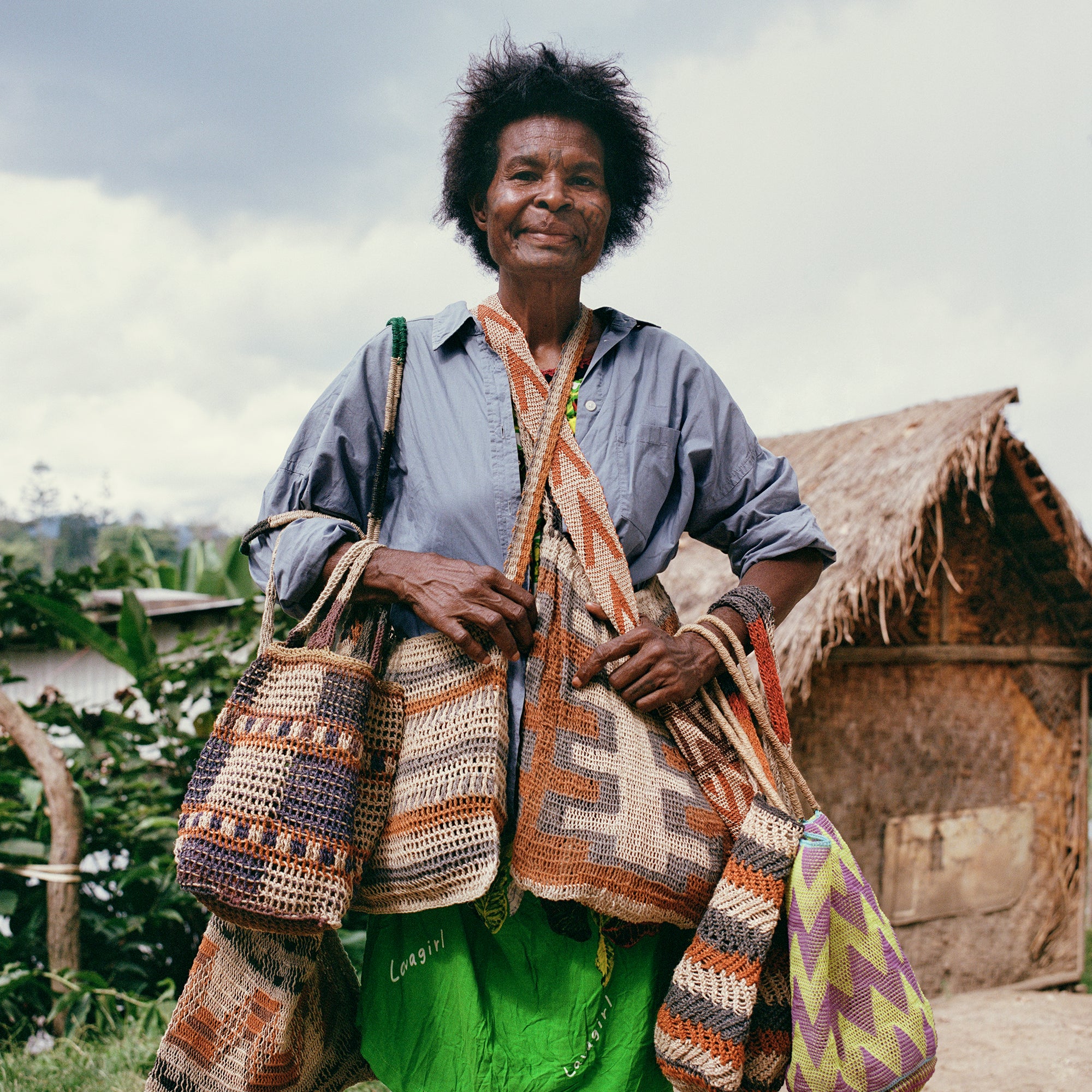
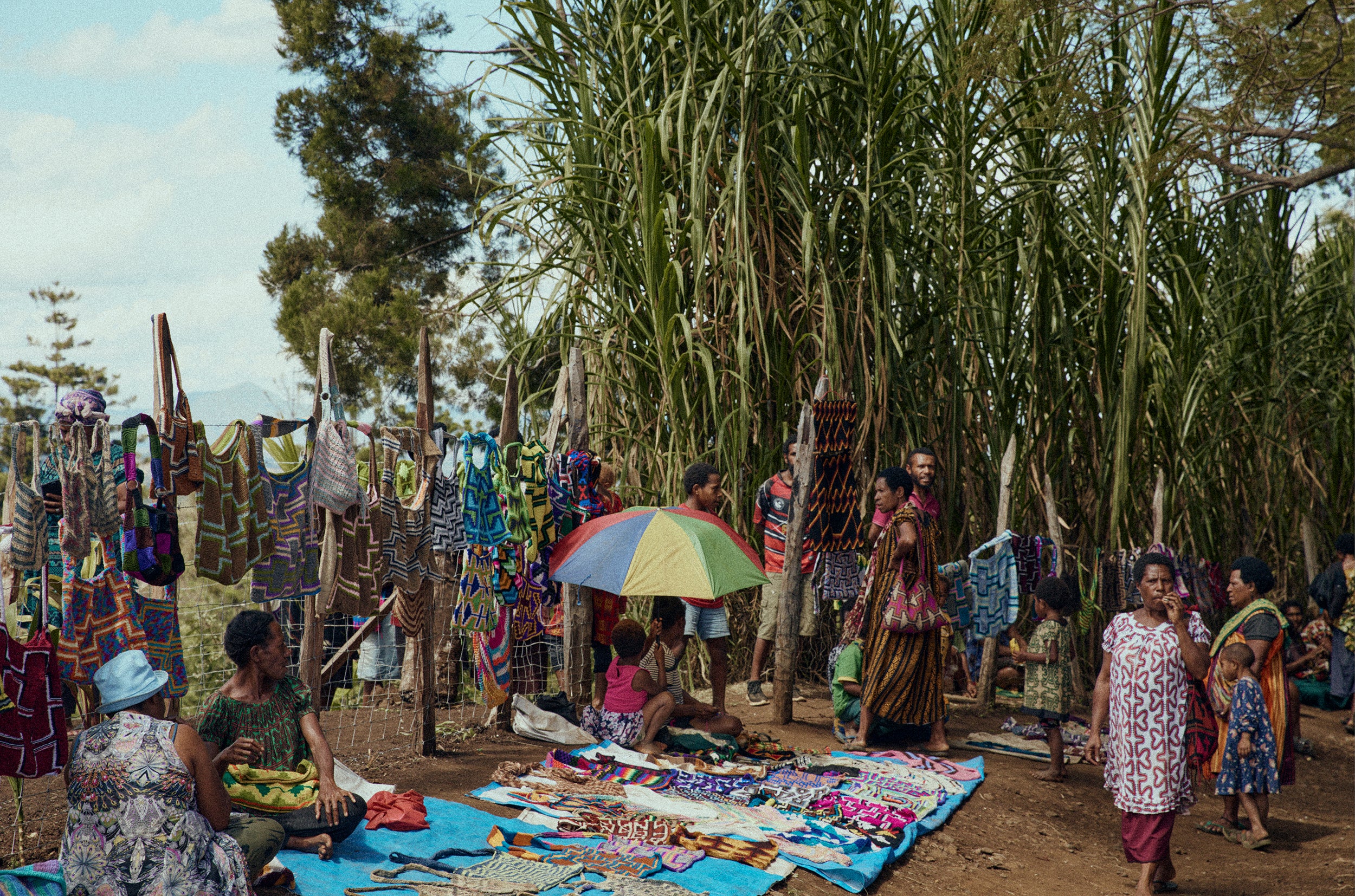
PURCHASING
Among Equals is a not-for-profit brand dedicated to making change through empowering communities of artisan weavers. Every Bilum purchased by Among Equals provides weavers with a regular income. With our profits reinvested in PNG communities, our mission is to empower more and more Bilum weavers, with an enduring economic and cultural impact.
STORIES WITHIN THE PATTERNS
